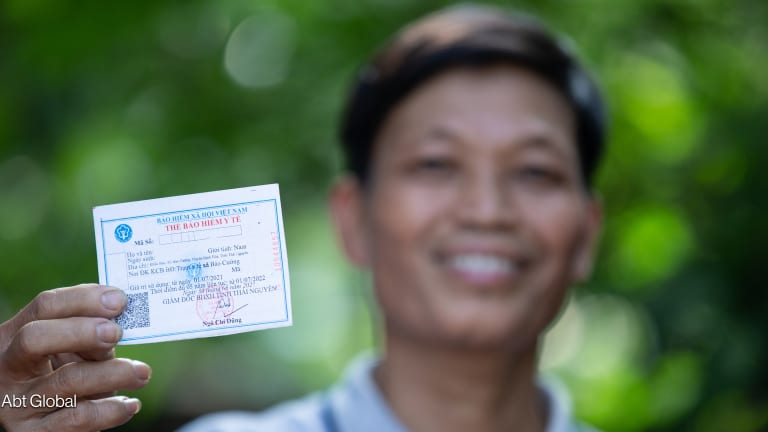By Fiona Samuels
Last year on World AIDS Day, the Overseas Development Institute in collaboration with a range of partners, organised an event which explored how the AIDS community, both donors and implementers, were going to be affected by the changing global financial environment. A call was made for improved leadership and collaboration both within and between sectors; commitments to meeting the Universal Access declarations were re-stated; and a widening of the purely biomedical aspect of HIV was also heard, placing HIV into broader contexts and debates around poverty, food security and social protection.
It was also felt that at the time, the effects of the financial environment had not yet been fully felt. So, as another World AIDS Day rolls around - this year focusing on universal access - where are we? ODI has been carrying out a considerable body of work exploring the effects of the financial crisis on developing countries. Some key findings show that, amongst other things, the crisis is squeezing budgets, compromising ODA as well as national budgets and having implications for health expenditures. From an AIDS perspective, evidence is beginning to show that, despite various actions by the AIDS lobby, AIDS budgets are being cut (UNAIDS, 2009), but at this stage the general consensus (UNICEF study on the impacts of the crisis upon children and HIV/AIDS) is that the full effects of the crisis will not really start to be felt until the next fiscal year.
In the case of international health, financing for HIV/AIDS treatment and prevention, funding contraction is already being felt by programmes supported by the GFATM, PEPFAR (U.S. President's Emergency Plan for AIDS Relief) and INGO-led programmes. This is largely related to currency devaluations, which have shrunk the overall funding pot, increased the cost of imported drugs and reduced commitments from some participating donors. It is also due to changes in priorities. Note, for instance, the reduction in planned HIV funding by the US government and the switch to a broader focus on international health by the Obama administration. The greatest concern amongst those working in the HIV sector is that some of the gains made in the recent years (e.g. in the access to and uptake of anti-retroviral treatment (ART) and a stronger focus on prevention) will be lost. For instance, a report produced by the UK All Party Parliamentary Group on AIDS makes the case for increasing ART, including second line treatment. It also comes at a time when the AIDS exceptionalism versus health systems funding debate continues; ODI's research suggests that the two mechanisms are not necessarily mutually exclusive and that AIDS funding and health systems funding can and should support and build upon each other.
By the end of 2009 the world has also moved on in terms of its concern and understanding of how fragile situations, including (post) conflict and geologically related factors will affect all sectors including health and HIV, for years to come. ODI has been doing a considerable amount of work looking specifically at HIV in fragile situations, and has released a new Project Briefing on the impact of crises and HIV and AIDS on ‘skipped-generation' households. Not only does this body of work raise awareness of the need to consider health and HIV specifically in disaster planning and preparedness, bringing also the development and humanitarian communities together, but it also pushes both these communities to think about particularly vulnerable, often neglected and hard to reach populations, e.g. older people, children and sex workers. Similarly, it also stimulates discussions around how, where appropriate, to include such marginalised groups into nationwide social protection plans and other forms of development planning. As the theme for this year's World AIDS Day highlights, not only do such populations have a right to access basic services, including health and HIV-related services, but if these services are not provided then we, the development community, have a right and obligation to speak out against this violation of basic human rights. Above all, we must ensure that in the context of crisis, the entitlement to HIV services (including prevention services) and treatment (including targeting for vulnerable groups) are not irreversibly compromised and that the progress of the last decade does not stagnate, let alone be allowed to reverse.
Re-published with permission by the Overseas Development Institute .








